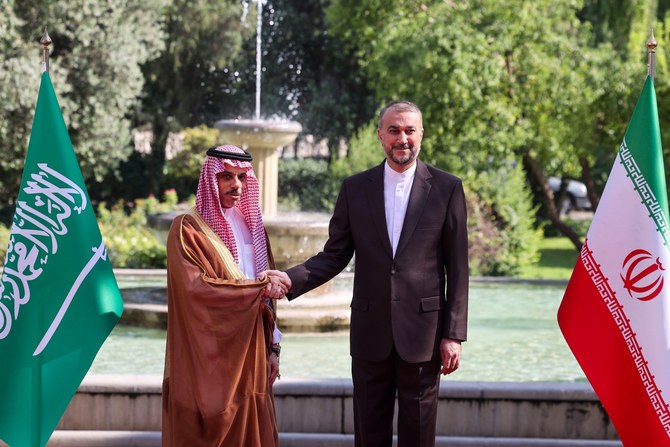
Attempts to salvage the 2015 Iran nuclear deal are “rapidly reaching the end of the road”, European negotiators have warned, as talks in Vienna adjourned to allow the Iranian negotiator to return home for consultation – a pause described by the Europeans as disappointing.
“We hope that Iran is in a position to resume the talks quickly, and to engage constructively so that talks can move at a faster pace,” France, Germany and the UK said. “As we have said, there are weeks not months before the deal’s core non-proliferation benefits are lost. We are rapidly reaching the end of the road for this negotiation.
“Iran’s nuclear programme is now more advanced than it has ever been … [and] it is critical that Iran avoids further escalatory steps.” The talks are likely to resume before the end of the year.
Overall the European countries believe they have wrenched the Vienna talks closer to the point they had reached when the talks were suspended in June to give time for a review by Iran’s new hardline government.
Iran’s new negotiators came back to the resumed talks three weeks ago with new texts, including lines on future nuclear commitments that tore up most of the prior compromises reached with the previous government. The European diplomats argue they have now got back closer to the previous starting line.
European negotiators accept it is hard to judge Iran’s motives, but believe Iran is giving just enough to prevent a collapse in the highly technical talks, including on the UN nuclear inspectorate’s access to sites in Iran. The lack of access, and knowledge of the contemporary state of Iran’s nuclear programme, makes it harder to set baselines for what Iran’s must do to avoid the risk of proliferation.
The US has participated indirectly in the talks because it withdrew from the accord in 2018 under President Donald Trump. His successor, Joe Biden, has signalled that he wants to rejoin the deal.
Europe had been planning to demand an emergency board meeting of the UN nuclear watchdog, the International Atomic Energy Agency (IAEA), on Monday. The meeting may well have led to a vote of censure on Iran for failing to cooperate with the IAEA inspectors.
In a sign of the difficulties over inspections, Rafael Grossi, the director general of the IAEA, on Friday cast doubt on Iranian claims that critical footage from a surveillance camera at an Iranian centrifuge-parts workshop at Karaj had gone missing after an apparent sabotage attack in June. He described the Iranian explanation as “very strange”.
One of four IAEA cameras placed at Karaj near Tehran was destroyed in an apparent attack often attributed to Israel.
Iran removed the cameras and showed them to the IAEA, but the destroyed camera’s data storage device was never presented. The IAEA and western powers have been demanding Iran produce the device since the Karaj workshop is used to make advanced centrifuges, essential to making enriched uranium.
Grossi, setting out details of his latest agreement with Iran on access to its nuclear sites at a press conference this week, accepted he had not reached an agreement with Iran on locating the data storage medium from the damaged camera.
Asked if it was credible the data storage medium had simply vanished, as Iran claimed, he replied: “We have doubts about that. This is why we are asking them ‘where is it?’ I am hoping they come up with an answer because it is very strange it disappears.”
Grossi said it was right to presume the plant is producing advanced centrifuges. His challenge to Iran’s credibility will provide ammunition to those western diplomats that say Iran is stalling at the nuclear talks in Vienna, and hiding its true intentions.
Grossi also confirmed that his agreement this week allowing new cameras to be restored at the Karaj workshop in the coming days contains the vital proviso that the IAEA will not have access to the camera’s memory cards until US sanctions are lifted and an agreement is reached on the restoration of the nuclear deal. It might take many months for Iran to verify sanctions have been lifted. The IAEA has not had access to the memory cards since February.
Grossi insisted it will be still possible once the IAEA has access to the memory cards to put together the puzzle about what has been happening at Karaj, but said if access was denied for years a reconstruction would be impossible. The initial deal for the IAEA cameras to continue filming, but for IAEA not to have access to the memory card, was struck in February. That deal, Grossi said, had only been conceived as a temporary stopgap, and a bridge to a better permanent arrangement.
Some Israeli defence and intelligence officials have alleged that Iran has used the period of shutting out the IAEA since June to smuggle portions of its 60%-enriched uranium to clandestine sites either to proceed covertly toward a nuclear weapon or to preserve the option to do so.












